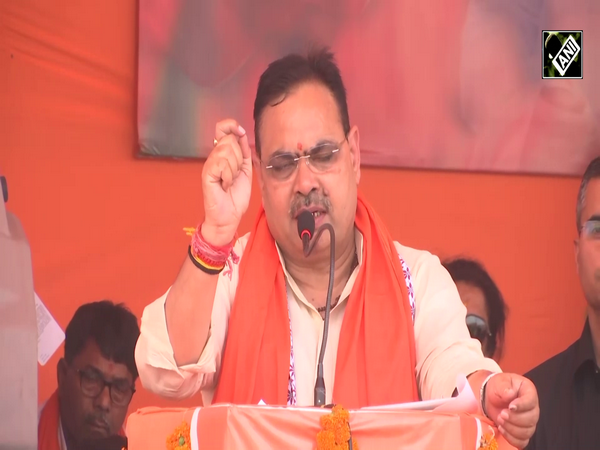DCGI's subject expert committee to hold discussion on 'Five Arms' intranasal heterologous booster dose on Nov 15, sources
Nov 12, 2022

New Delhi [India], November 12 : The Subject Expert Committee (SEC) members of the Drugs Controller General of India (DCGI) are going to meet on November 15 and hold a discussion on intranasal "Five Arms" booster dose - iNCOVACC (BBV154), official sources told ANI.
"Developed by the Bharat Biotech International Limited (BBIL), the five arms heterologous intranasal booster dose means, "Arm 1: 2 covaxin - booster covaxin, Arm 2: 2 covaxin - booster I/N vaccine, Arm 3: 2 Covishield- booster Covishield, Arm 4: 2 Covishield- booster I/N vaccine, Arm 5: 2 intranasal- booster intranasal," they explained.
DCGI has already given emergency use authorization (EUA) to BBIL for the intranasal vaccine.
BBIL had in September this year applied for DCGI's approval for market authorization of its "Five Arms" intranasal heterologous booster dose. It has now announced that iNCOVACC (BBV154) has received approval under Restricted Use in Emergency Situation for ages 18 and above.
"We are proud to announce the approval of iNCOVACC, a global game changer in Intra Nasal vaccines technology and delivery systems. Despite the lack of demand for COVID-19 vaccines, we continued product development in intranasal vaccines to ensure that we are well-prepared with platform technologies for future infectious diseases. We thank the Ministry of Health, the CDSCO, Dept of Biotechnology Govt of India, and Washington University St. Louis for their support and guidance. iNCOVACC has been designed for efficient distribution and easy administration," BBIL's Chairman and Managing Director Dr Krishna Ella had said in a statement.
"iNCOVACC is a recombinant replication-deficient adenovirus vectored vaccine with a pre-fusion stabilized spike protein. This vaccine candidate was evaluated in phase I, II, and III clinical trials with successful results. iNCOVACC has been specifically formulated to allow intranasal delivery through nasal drops. The nasal delivery system has been designed and developed to be cost-effective in low- and middle-income countries," the BBIL's statement added.
"Clinical trials were conducted to evaluate iNCOVACC as a primary dose schedule, as a heterologous booster dose for subjects who have previously received 2 doses of the two commonly administered covid vaccines in India" the statement issued by the company read.
"Immunogenicity was evaluated through serum neutralizing antibodies by PRNT assays and serum IgG's through ELISA's. To evaluate vaccines taken through the intranasal route, IgA's were evaluated by ELISA in serum and saliva. The evaluation was also carried out for the ability iNCOVACC to elicit long-term memory T and B cell responses against the ancestral and omicron variants" it said.
"The vaccine development data will be submitted to peer-reviewed journals, "iNCOVACC was evaluated to determine its impact on safety. The reactogenic events and adverse events that were documented during the trial were highly comparable to published data from other covid-19 vaccines. Product development data will be submitted to peer-reviewed journals and will be made available in the public domain," the BBIL added in its statement.


















